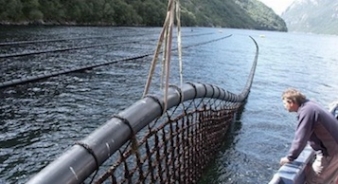
During an internal meeting at Sioen Industries, a group of employees and managers decided that in order to keep contributing to European innovation, they would have to target and tackle the societal challenges formulated by the European Commission. One way to address those challenges was to demonstrate the technological and economic feasibility of seaweed cultivation. Quickly realizing that they themselves did not have all the necessary knowledge, competence, or technologies, and that developing these in-house would be too resource- and time-consuming, Sioen Industries opted for a cross-industry innovation project called the AT~SEA Project.
The idea of cultivating marine biomass on textiles rapidly attracted a series of partners from other industries (such as biology, chemistry and marine engineering). All of them were interested in innovating together with Sioen Industries. They conceptualized their idea by writing a proposal for a FP7 grant, which was awarded by the European Commission. The AT~SEA Project comprised 11 distinct organizations. Each partner drew on his own competence and expertise to come up with ideas and solutions. These ideas were then assembled into packages, which were, in turn, assigned to work groups. The groups contained a mix of professional backgrounds, companies and research institutions.
Just recently, the AT~SEA Project has been fully developed, and with great success. A large part of the consortium has now become a joint spin-off venture called AT~SEA Technologies, uniting 8 of the original 11 partners.
← All cases